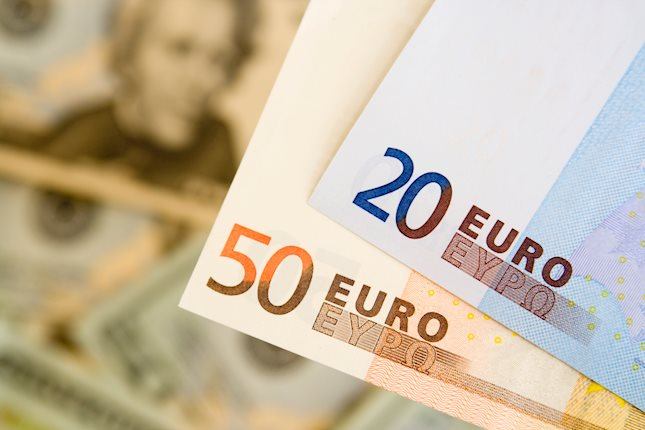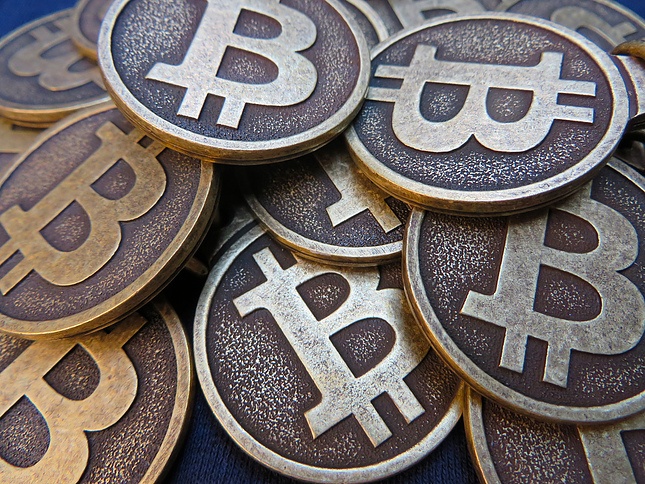Here is what you need to know on Monday, January 6:
Following the holiday-shortened week that offered some volatility in financial markets, trading conditions finally start to normalize. Regional and nation-wide inflation data from Germany will be watched closely on Monday. In the second half of the day, the US economic calendar will feature Factory Orders data for December. Investors will also scrutinize comments from central bank officials.
US Dollar PRICE Last 7 days
The table below shows the percentage change of US Dollar (USD) against listed major currencies last 7 days. US Dollar was the strongest against the Euro.
| USD | EUR | GBP | JPY | CAD | AUD | NZD | CHF | |
|---|---|---|---|---|---|---|---|---|
| USD | 1.07% | 1.07% | -0.13% | -0.13% | -0.23% | 0.06% | 0.86% | |
| EUR | -1.07% | -0.00% | -1.23% | -1.24% | -1.35% | -1.05% | -0.25% | |
| GBP | -1.07% | 0.00% | -1.22% | -1.23% | -1.35% | -1.04% | -0.27% | |
| JPY | 0.13% | 1.23% | 1.22% | -0.02% | -0.06% | 0.33% | 1.04% | |
| CAD | 0.13% | 1.24% | 1.23% | 0.02% | -0.10% | 0.26% | 0.97% | |
| AUD | 0.23% | 1.35% | 1.35% | 0.06% | 0.10% | 0.31% | 1.09% | |
| NZD | -0.06% | 1.05% | 1.04% | -0.33% | -0.26% | -0.31% | 0.78% | |
| CHF | -0.86% | 0.25% | 0.27% | -1.04% | -0.97% | -1.09% | -0.78% |
The heat map shows percentage changes of major currencies against each other. The base currency is picked from the left column, while the quote currency is picked from the top row. For example, if you pick the US Dollar from the left column and move along the horizontal line to the Japanese Yen, the percentage change displayed in the box will represent USD (base)/JPY (quote).
The US Dollar (USD) gathered strength against its major rivals after the New Year break, with the USD Index rising nearly 1% on a weekly basis. Early Monday, the index stays in a consolidation phase below 109.00, while the benchmark 10-year US Treasury bond yield holds above 4.6%. The US stock index futures trade mixed after Wall Street's main indexes closed in positive territory on Friday.
Earlier in the day, Bank of Japan (BoJ) Governor Kazuo Ueda reiterated that the timing of adjusting monetary support depends on economic, price and financial developments. "We must be vigilant to various risks in deciding timing for adjusting the degree of monetary support," he added. After posting small losses on Friday, USD/JPY edged slightly higher in the Asian session on Monday and was last seen trading above 157.50.
EUR/USD suffered large losses on the first trading days of 2025. After staging a technical correction on Friday, the pair stays relatively quiet slightly above 1.0300 in the European morning on Monday. January Sentix Investor Confidence data for the Eurozone will be published later in the session. In Germany, the annual inflation, as measured by the change in the Consumer Price Index (CPI), is forecast to rise to 2.4% in December from 2.2% in November.
GBP/USD lost more than 1% on Thursday and touched its weakest level since April near 1.2350. Following a rebound on Friday, GBP/USD trades marginally higher on the day at around 1.2450 in the European morning.
The data from Australia showed in the Asian session that the Judo Bank Composite PMI rose to 50.2 in December. AUD/USD showed no reaction to this data and was last seen trading in positive territory at around 0.6230.
Gold benefited from the risk-averse market atmosphere and gained nearly 2% in a two-day rally after the New Year holiday. With the US Treasury bond yields pushing higher ahead of the weekend, XAU/USD erased a portion of its weekly gains on Friday. Early Monday, Gold trades modestly lower on the day near $2,630.
German economy FAQs
The German economy has a significant impact on the Euro due to its status as the largest economy within the Eurozone. Germany's economic performance, its GDP, employment, and inflation, can greatly influence the overall stability and confidence in the Euro. As Germany's economy strengthens, it can bolster the Euro's value, while the opposite is true if it weakens. Overall, the German economy plays a crucial role in shaping the Euro's strength and perception in global markets.
Germany is the largest economy in the Eurozone and therefore an influential actor in the region. During the Eurozone sovereign debt crisis in 2009-12, Germany was pivotal in setting up various stability funds to bail out debtor countries. It took a leadership role in the implementation of the 'Fiscal Compact' following the crisis – a set of more stringent rules to manage member states’ finances and punish ‘debt sinners’. Germany spearheaded a culture of ‘Financial Stability’ and the German economic model has been widely used as a blueprint for economic growth by fellow Eurozone members.
Bunds are bonds issued by the German government. Like all bonds they pay holders a regular interest payment, or coupon, followed by the full value of the loan, or principal, at maturity. Because Germany has the largest economy in the Eurozone, Bunds are used as a benchmark for other European government bonds. Long-term Bunds are viewed as a solid, risk-free investment as they are backed by the full faith and credit of the German nation. For this reason they are treated as a safe-haven by investors – gaining in value in times of crisis, whilst falling during periods of prosperity.
German Bund Yields measure the annual return an investor can expect from holding German government bonds, or Bunds. Like other bonds, Bunds pay holders interest at regular intervals, called the ‘coupon’, followed by the full value of the bond at maturity. Whilst the coupon is fixed, the Yield varies as it takes into account changes in the bond's price, and it is therefore considered a more accurate reflection of return. A decline in the bund's price raises the coupon as a percentage of the loan, resulting in a higher Yield and vice versa for a rise. This explains why Bund Yields move inversely to prices.
The Bundesbank is the central bank of Germany. It plays a key role in implementing monetary policy within Germany, and central banks in the region more broadly. Its goal is price stability, or keeping inflation low and predictable. It is responsible for ensuring the smooth operation of payment systems in Germany and participates in the oversight of financial institutions. The Bundesbank has a reputation for being conservative, prioritizing the fight against inflation over economic growth. It has been influential in the setup and policy of the European Central Bank (ECB).
Information on these pages contains forward-looking statements that involve risks and uncertainties. Markets and instruments profiled on this page are for informational purposes only and should not in any way come across as a recommendation to buy or sell in these assets. You should do your own thorough research before making any investment decisions. FXStreet does not in any way guarantee that this information is free from mistakes, errors, or material misstatements. It also does not guarantee that this information is of a timely nature. Investing in Open Markets involves a great deal of risk, including the loss of all or a portion of your investment, as well as emotional distress. All risks, losses and costs associated with investing, including total loss of principal, are your responsibility. The views and opinions expressed in this article are those of the authors and do not necessarily reflect the official policy or position of FXStreet nor its advertisers. The author will not be held responsible for information that is found at the end of links posted on this page.
If not otherwise explicitly mentioned in the body of the article, at the time of writing, the author has no position in any stock mentioned in this article and no business relationship with any company mentioned. The author has not received compensation for writing this article, other than from FXStreet.
FXStreet and the author do not provide personalized recommendations. The author makes no representations as to the accuracy, completeness, or suitability of this information. FXStreet and the author will not be liable for any errors, omissions or any losses, injuries or damages arising from this information and its display or use. Errors and omissions excepted.
The author and FXStreet are not registered investment advisors and nothing in this article is intended to be investment advice.
Recommended content
Editors’ Picks

EUR/USD falls to fresh daily lows below 1.0400 after upbeat US data
EUR/USD came under selling pressure early in the American session following the release of United States macroeconomic figures. The December ISM Services PMI unexpectedly surged to 54.1, while November JOLTS Job Openings rose to 8.1 million, also bearing expectations.

GBP/USD extends retracement, struggles to retain 1.2500
GBP/USD lost further traction and battles to retain the 1.2500 mark after hitting an intraday high of 1.2575. Stock markets turned south after the release of upbeat American data, providing fresh legs to the US Dollar rally.

Gold holds on to modest gains amid a souring mood
Spot Gold lost its bullish traction and retreated toward the $2,650 area following the release of encouraging US macroeconomic figures. Jumping US Treasury yields further support the US Dollar in the near term.

Bitcoin Price Forecast: BTC holds above $100K following Fed’s Michael Barr resign
Bitcoin edges slightly down to around $101,300 on Tuesday after rallying almost 4% the previous day. The announcement of Michael S. Barr’s resignation as Federal Reserve Vice Chair for Supervision on Monday has pushed BTC above the $100K mark.

Five fundamentals for the week: Nonfarm Payrolls to keep traders on edge in first full week of 2025 Premium
Did the US economy enjoy a strong finish to 2024? That is the question in the first full week of trading in 2025. The all-important NFP stand out, but a look at the Federal Reserve and the Chinese economy is also of interest.

Best Forex Brokers with Low Spreads
VERIFIED Low spreads are crucial for reducing trading costs. Explore top Forex brokers offering competitive spreads and high leverage. Compare options for EUR/USD, GBP/USD, USD/JPY, and Gold.